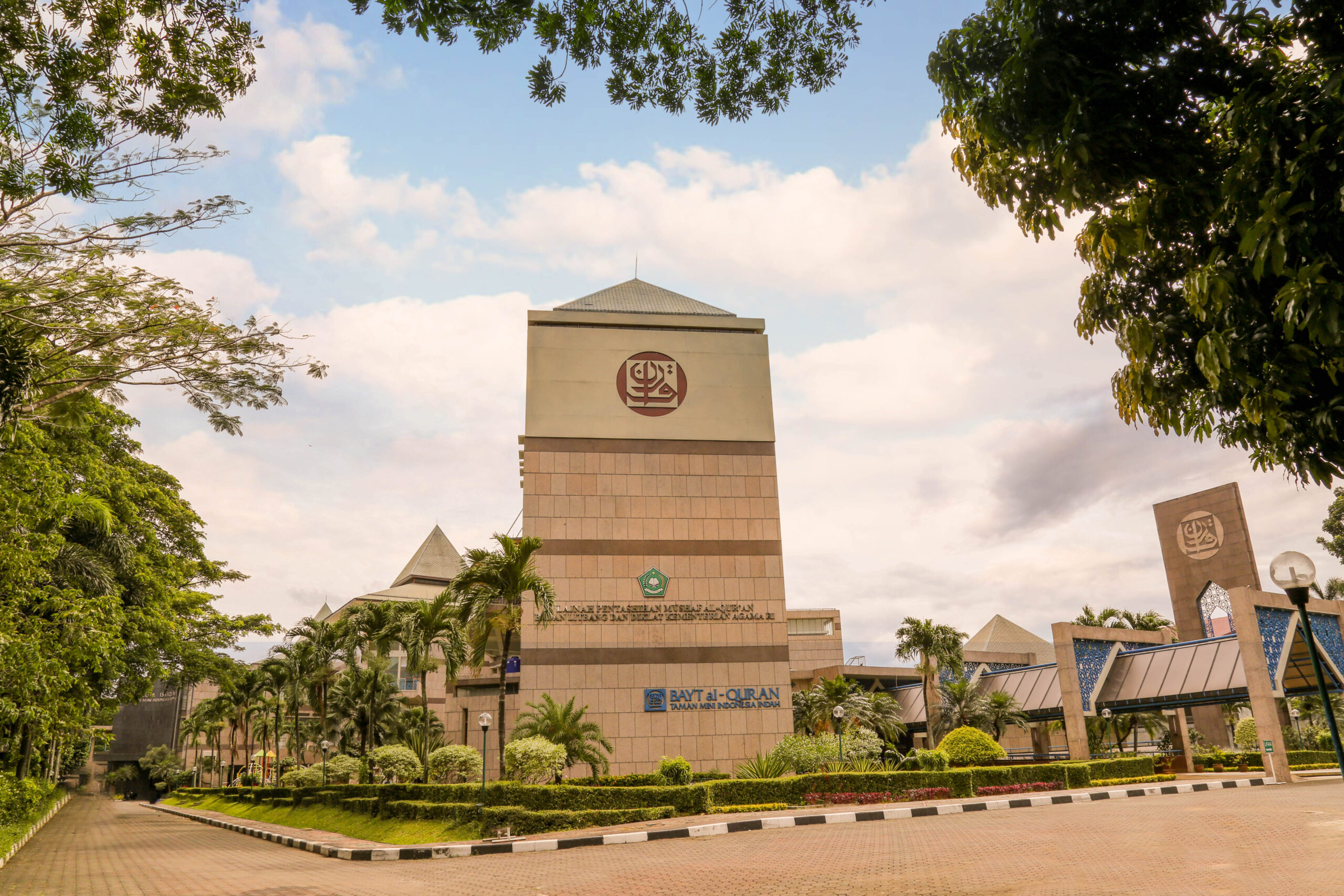Bayt Al-Qur’an and Museum Istiqlal (BQMI) are two integrated museums united as one entity, each representing a distinct yet interconnected purpose. Bayt Al-Qur’an showcases the Qur’an as a holy scripture and a divine guide for humanity, while Museum Istiqlal highlights the application of Qur’anic values within the daily lives and culture of Muslims in the Indonesian archipelago.
Inaugurated by President Soeharto on April 20, 1997, both museums were established to cultivate love, understanding, and practice of the Qur’an within the broader society. BQMI aims to present the essence and image of Islamic teachings and the Indonesian Islamic culture in an open, dynamic, and tolerant manner that enriches the global Islamic heritage.
Bayt Al-Qur’an preserves and displays a diverse collection of Qur’anic treasures. These include handwritten Qur’anic manuscripts, printed editions, braille Qur’ans, sign language Qur’ans, and translations in regional and foreign languages. It also features a wide array of Qur’anic commentaries and cultural artifacts inspired by the Qur’an. Among the standout collections are elaborately designed manuscripts such as Mushaf Istiqlal, Mushaf Sundawi, and Mushaf Jakarta; symbolic works like Mushaf Pusaka representing Indonesia’s diplomatic legacy; the giant Mushaf Wonosobo; and the miniature Mushaf Istanbul. Visitors can also explore the interactive digital version of Mushaf Istiqlal, where pages can be turned with a simple wave of the hand.
Istiqlal Museum’s collection largely stems from the exhibits of the First and Second Istiqlal Festivals, held in 1991 and 1995. The museum houses various religious manuscripts including Islamic jurisprudence, translations, tafsir (Qur’anic exegesis), and spiritual stories. It also features replica gravestones from archaeological sites, documentation of historic mosques, collections of Islamic calligraphy, textiles, visual arts, and more.
Spread across four floors, the BQMI building includes a mosque, main hall, cinema room, children’s area, auditorium, meeting rooms, and classrooms. Beyond its function as a museum, BQMI serves as a venue for seminars, temporary exhibitions, competitions, academic forums, and community activities, all while celebrating the richness of Indonesia’s cultural and Islamic heritage.












